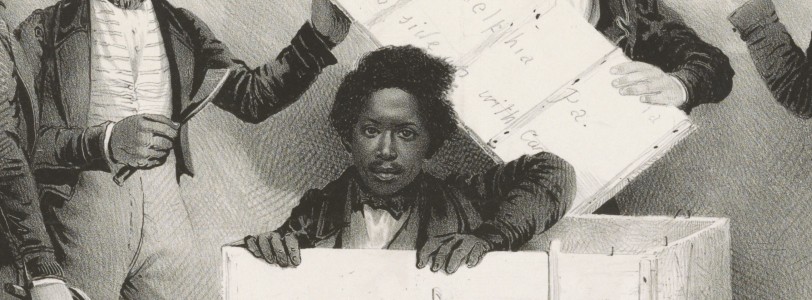Directed by the award winning Ben Harney from Dreamgirls, Henry Box Brown is unique experience placed somewhere between acapella spirituals, period drama, and Afro-beats. This performance, a total risk-taker in how it chooses to tell a harrowing history about slavery through musical celebration, is certainly one-of-a-kind in more ways than one. Slavery is a subject most musicals and operas steer clear from but Harney saw something in that rare experience, trusted it, and is now reaping those rewards due to him for having vision. That rare experience is seeing a horrible history expressed through a genre that is – by nature – a means towards an uplifting experience. Knowing that most musicals deliver happy endings offers audiences comfort, even healing, in what is otherwise a demanding watch.
And not only does a musical about black slaves create healing but it also makes for a heavenly showcase of vocal finesse that is well-deserving of that riotous standing ovation. The whole extravaganza is thoroughly excellently cast, which is why singling out grown-up Henry (Paul Gee) and Nancy (Sharaé Moultrie) for special mention is not easy.
One meta scene, where Henry’s fellow slave man appears to drop his character and bypass historical hierarchies as he effortlessly transitions into an on-stage conductor, is not to be missed. Conducting slave-owners and slaves alike, that single moment fully encapsulates how this entire performance is able to reach beyond historical restrictions into liberation through sheer musical triumph.
But there are, indeed, instances where that harrowing history becomes all too much especially when offered as a musical that can, sometimes, feel off-hand about what is grave. The racial divide that is performed, more often than not mapped squarely onto good and evil, is not for the (white) fragile. White characters come off as cartoonishly evil, singing ditties about money-grubbing and all-too-ambitious negroes. The fact that those black voices totally upstage their white counterparts, admittedly partly due to being given more accomplished songs to work with, does not help this situation.
And though slave-owners certainly merit no less, Henry Box Brown fails to explore those endlessly convoluted – and fascinating – ties created by kinship, something-like-Stockholm-syndrome, and slave-owners raping their slaves. But, admittedly, a musical is a challenging medium through which to negotiate racial divides and, perhaps, Henry Box Brown is ultimately unbothered by all this.
It all ends on a conciliatory note where a now spatially mixed up cast (previously cordoned off onto either extreme) falsetto off into post-racial utopia. Audiences with their wits about them might accuse Henry Box Brown of being a naïve performance that articulates a simplified racial politics. And others might retort that it is, after all, a musical about slavery.
And yet, perhaps, this performance somehow manages to side-step that enormous expectation and responsibility that comes with daring to stage slavery, especially as a musical. Because even when staging conventions seem near offensive (such as double casting slaves), they become – nonetheless – effective because slavery, and its legacy, is communicated as something that stunts generational progress. Henry Box Brown, aptly titled a ‘musical journey’, aims only to articulate perseverance over pain through musical joy.
To confirm such suspicions audience members need only glance towards the far right stage, where a black woman clad in traditional African dress drums out those rhythms that keep every song and transition smooth. Her costume, and demeanour, offers respite from a dismal sea of slave rags and a harrowing history so skilfully recreated it becomes depressing. Her near-anachronistic presence is absolutely necessary: a simultaneous gesture towards forgotten histories and brilliant futures.








0 Comments